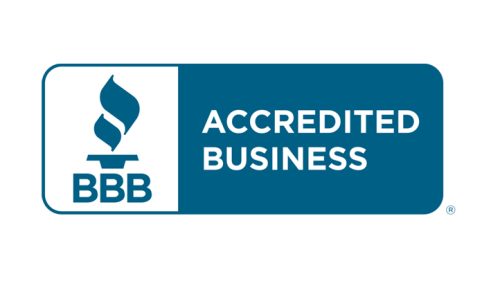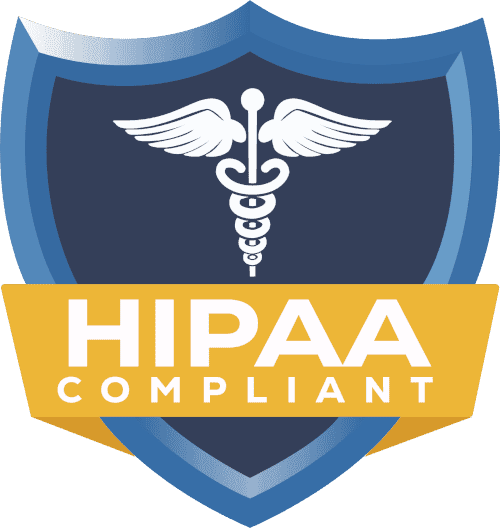Medical Credentialing Companies: What Services Do They Really Offer?

The most common question healthcare professionals, clinic owners, and billing agencies new to providing credentialing services ask is: What do medical credentialing companies do? It is not always immediately clear what the answer is.
There is no need to panic or fear; we will explain it to you in simple terms.
Understanding the Role of Credentialing in Healthcare
Healthcare centres around credentialing. It determines how providers are paid, how they gain trust, and how they stay compliant. However, it can be time-consuming and confusing. This is why many practitioners seek help from credentialing specialists. Credentialing is the process of verifying a healthcare provider’s suitability.
It is designed to help doctors, nurses, therapists, and other professionals meet the requirements set by insurance companies, government payers, and hospital networks. RoC achieves this by verifying qualifications such as education and training, issuing state licences, board certifications, employment history, malpractice insurance, and other essential identifications like NPI and DEA. Once eligibility is verified, providers can apply to join insurance panels through a process known as payer enrolment.
What Do Medical Credentialing Companies Actually Do?
Medical credentialing businesses are also known as healthcare credentialing agencies or medical enrolment firms. To handle this complex process, they manage the medical credentialing procedure on your behalf. They organise paperwork, complete applications, contact payers, and monitor various enrolment statuses. Their services cover the entire process, ensuring nothing is overlooked and that your application remains on track.
Key Services Provided by Medical Credentialing Companies
Payer Enrollment
Paying for enrolment by payers is also one of the most important services provided. This involves contracting providers with insurance companies such as Aetna, Blue Cross Blue Shield, UnitedHealthcare, Medicare, and Medicaid. Credentialing professionals gather all necessary documentation, complete payer-specific applications, submit them, and continue following up with the payers to track approvals and denials. Proper enrollment is crucial for billing insurance, and without it, no payment can be made for your services.
CAQH Registration and Management
CAQH registration and management is another essential service. CAQH, or the Council of Affordable Quality Healthcare, operates an online database that most insurance companies use to verify provider information. Credentialing firms assist you in completing your CAQH profile, ensuring it is accurately maintained and re-attested every 120 days. This is vital because outdated or incorrect CAQH data can be costly to process and may even halt your credentialing progress.
License and Certification Verification
Credentialing firms also handle verification of licences and certifications. Your state licences, DEA registrations, and board certifications should, but do not always, be verified directly from the source. These companies also request verification from licensing boards, obtain confirmation from certifying organizations, and ensure all credentials are current and active. This step not only meets the requirements of payers but also enhances patient safety.
Ongoing Compliance Monitoring
Credentialing is not a one-time process. Payers through insurance will require periodic re-credentialing and ongoing compliance. This is where continuous compliance monitoring becomes essential. Credentialing firms will keep track of licence expiry dates, re-attestation dates at CAQH, document expiry dates, and changes in practice information. They maintain a digital record that is kept current to ensure your practice remains compliant at all times.
Re-Credentialing
Most insurance companies require re-credentialing, which occurs every two to three years. This involves recertification of most of the credentialing processes you completed to remain in your network. Credentialing agencies also monitor these renewal dates, collect the necessary documents, update profiles as needed, and communicate directly with insurance companies, thereby preventing service interruptions. Missing these deadlines may result in deactivation, delayed payments, or termination from the network.
Medicare and Medicaid Enrollment
Registration with Medicare and Medicaid involves a specialised process with its procedures and rules. Credentialing companies are experienced in handling such processes. They operate on PECOS (Medicare’s online system) and navigate the state Medicaid portals, ensuring that applications are submitted correctly and promptly. Since these applications can be time-consuming and prone to errors, it is essential to have an expert assist in ensuring they are completed accurately.
Multi-Provider and Facility Support
Credentialing companies handle not only individual providers but also groups, clinics, and other healthcare facilities. Their services include group NPI registration, facility licensing, enrolling an unlimited number of providers, and managing multi-specialty rosters. These services are very beneficial for growing practices or large clinics that are continuously hiring more providers.
Credentialing Audits and Clean-Up
In some cases, the issues may already be underway by the time they reach the credentialing companies. There might be missing information, application delays, or outright refusals. Credentialing companies that provide audit and clean-up services handle such cases. They review your files, correct any errors or outdated data, reprepare the necessary documents, and resubmit the applications with the amendments. This type of clean-up can help a struggling provider get back on track.
Benefits of Outsourcing Credentialing
The question you might ask yourself is whether you can handle all this alone. Technically, yes. However, credentialing is a demanding, labour-intensive process that requires precision, commitment, and knowledge of the payer’s regulatory requirements. Any error can lead to significant delays or even loss of profits. This is why it is usually wiser to outsource to the professionals.
Outsourcing credentialing offers clear benefits. Firstly, it speeds up the enrollment process. Credentialing firms have the experience of how payer systems operate and can anticipate potential pitfalls. They also significantly reduce errors, as trained professionals carefully review each submission. Outsourcing saves both time and money, allowing you and your staff to focus more on patient care. It also simplifies compliance, as someone ensures deadlines are met and updates are made on time. Most importantly, it provides peace of mind, knowing that your practice’s revenue won’t suffer due to minor paperwork mistakes or missed steps.
How Credentialing Impacts Revenue and Cash Flow
Credentialing delays will directly impact revenue. For example, someone might see 30 patients a week but not be credentialed; in such cases, those visits may not be covered. Not all insurers reimburse retrospectively; they do not pay for services already performed without prior credentialing. These delays can also lead to claim rejections, extended resubmissions, and hinder cash flow. Using credentialing companies helps prevent application issues from the outset and acts as a form of risk management, providing significant benefits.
Final Thoughts: A Long-Term Partner for Practice Success
The role of medical credentialing companies is much more than just applying. They are long-term partners that help healthcare providers stay compliant, organized, and profitable. It doesn’t matter whether you are registering a single practice, enrolling a team of practitioners, or managing a larger facility; these professionals streamline the process. They protect your bottom line, whether it involves setting up CAQH, enrolling in Medicare, or ongoing re-credentialing.
Whether you are opening a new clinic, adding several new providers, or simply dislike doing the credentialing work, you might want to outsource the role to a credentialing company. With the right help, you will avoid losing time and money and remain focused on providing excellent healthcare to your patients.
FAQs
1. Are the services of all credentialing companies alike?
No, these are different. Some specialise in individual providers, while others focus on hospitals, group practices, or billing companies. Never hesitate to request a comprehensive list of the services you will receive.
2. Does CAQH form part of credentialing services?
Yes, setting up of CAQH profile, ongoing management of the same, and re-attestation are part of the default portfolio of most credentialing companies.
3. What is re-credentialing?
Re-credentialing is the process of renewing your credentials every few years to stay in-network with insurance payers. It involves updating and resubmitting documents.
4. What is the normal length of credentialing?
Credentialing generally takes 60-90 days for medical insurance processes and up to 120 days for Medicare and Medicaid. Starting the process early can significantly speed things up.
5. Are the credentialing firms able to do Medicare and Medicaid enrollments?
Yes, most well-established credentialing companies possess the management skills to handle PECOS and state Medicaid enrollments.



















